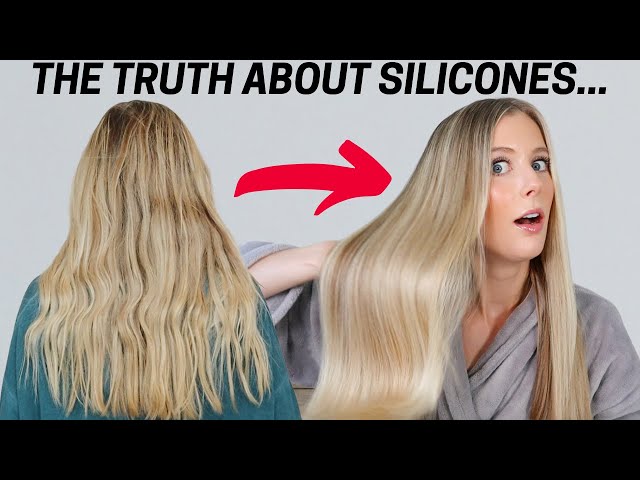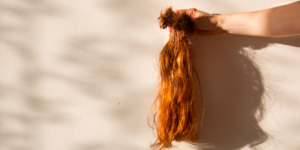
When it comes to hair care products, one ingredient that often gets a bad rap is silicones. But what exactly are silicones, and how do they affect our hair? In this blog post, the Zhuangming Biopharm will explore the role of silicones in hair products, their impact on hair health, and whether they are truly as harmful as some claim.
Silicones are a class of synthetic compounds that are commonly used in hair care products for their ability to smooth and condition the hair. They create a protective barrier around each strand, helping to reduce frizz, increase shine, and improve manageability. However, some people believe that silicones can weigh down the hair and cause buildup over time, leading to issues like dullness and decreased volume.
Despite these concerns, not all silicones are created equal. Some silicones are water-soluble and easily wash out with regular shampooing, while others are more difficult to remove and may require clarifying treatments. It’s important to pay attention to the type of silicone used in your hair products to avoid any potential issues.
For those with fine or thinning hair, silicones can actually be beneficial. They can help create the appearance of fuller hair by smoothing down the cuticle and reducing breakage. Additionally, silicones can provide heat protection against styling tools and environmental stressors, making them a valuable ingredient in many styling products.
While silicones have their benefits, it’s important to strike a balance when using them in your hair care routine. Using too many silicone-based products without proper cleansing can lead to product buildup and potentially worsen existing scalp conditions like dandruff or itching. To avoid these issues, consider incorporating clarifying shampoos into your routine or opting for silicone-free alternatives.
Silicones can be a useful tool in achieving healthy-looking hair when used correctly. They offer smoothing benefits, heat protection, and enhanced shine without causing harm when properly washed out. By being mindful of the type of silicone used in your products and incorporating regular cleansing into your routine, you can enjoy the benefits of silicone without experiencing any negative side effects on your hair. So next time you’re shopping for hair care products, don’t automatically dismiss those containing silicones – they might just be the secret ingredient you’ve been missing for beautiful locks!
Frequently Asked Questions about Silicones in Hair Products
Are silicones bad for all hair types?
No, silicones are not inherently bad for all hair types. They can be particularly beneficial for those with frizzy, dry, or damaged hair, as they provide smoothing and conditioning effects. However, individuals with fine or thinning hair should use silicones selectively to avoid potential buildup.
How can I tell if my hair products contain silicones?
Check the ingredient list on the product label. Common silicones used in hair care include dimethicone, cyclopentasiloxane, and phenyl trimethicone. Water-soluble silicones, such as dimethicone copolyol and PEG-modified dimethicone, are often easier to wash out.
Can I use silicones if I follow the Curly Girl Method?
The Curly Girl Method typically recommends avoiding silicones, as they can build up on curly hair and prevent moisture absorption. If you follow this method, look for products labeled as silicone-free to ensure compliance with the guidelines.
How often should I use a clarifying shampoo to remove silicone buildup?
The frequency of clarifying shampoo use depends on your hair type and the number of silicone-based products you use. Generally, once a month is a good starting point. However, if you notice buildup or your hair feels heavy and coated, you might need to use a clarifying shampoo more frequently.
Can silicones protect my hair from heat damage?
Yes, silicones can act as a barrier against heat, protecting your hair from damage caused by styling tools like flat irons and blow dryers. Look for heat-protectant products that contain silicones to shield your strands from high temperatures.
By understanding how silicones interact with your hair type and routine, you can make informed choices about incorporating them into your hair care regimen. Whether you decide to use silicones or opt for alternatives, the key is to maintain a healthy balance that keeps your hair looking and feeling its best.
Are there any natural alternatives to silicones for hair care?
Yes, there are several natural alternatives to silicones that provide similar smoothing and conditioning benefits. Plant-based oils like argan oil, jojoba oil, and avocado oil are excellent options. These oils are rich in nutrients and can help improve hair health and manageability without the risk of buildup. Additionally, natural ingredients such as aloe vera, shea butter, and glycerin can provide hydration and shine, making them great alternatives for those looking to avoid synthetic compounds.
Can silicones cause scalp irritation?
While silicones themselves are generally not known to cause scalp irritation, improper use or incomplete cleansing of silicone-based products can contribute to scalp issues. Buildup from silicones might trap dirt, oil, and other residues on the scalp, potentially leading to irritation, itching, or dandruff. Ensuring thorough cleansing and not overloading your routine with silicone-heavy products can help mitigate these risks.
How can I incorporate silicones into my hair care routine without experiencing buildup?
To use silicones without experiencing buildup, consider the following tips:
- Use water-soluble silicones or products specifically formulated to minimize buildup.
- Incorporate a clarifying shampoo into your routine as needed to remove any silicone residue.
- Avoid layering too many silicone-based products; instead, choose a single product that offers multiple benefits.
- Pay attention to your hair’s response and adjust your routine accordingly—if you notice your hair feeling heavy or coated, it may be time to clarify or reduce silicone use.
What are some common myths about silicones in hair products?
There are several myths surrounding silicones in hair products. One common misconception is that all silicones are harmful and contribute to hair damage. In reality, silicones can offer protective benefits and enhance the appearance of hair when used properly. Another myth is that silicones cannot be washed out, but many silicones are water-soluble and easily removed with regular shampoo. It’s important to approach information about silicones critically and rely on evidence-based sources to make informed decisions.
By debunking myths and gaining a comprehensive understanding of how silicones work, you can make more informed choices about your hair care products. Whether you choose to embrace silicones or seek out natural alternatives, the key lies in customizing your routine to meet your unique hair needs and maintaining a balanced approach to hair care.
Can silicones be used on color-treated hair?
Yes, silicones can be beneficial for color-treated hair. They form a protective barrier around each strand, helping to lock in color and reduce fade caused by washing and exposure to environmental factors like UV rays. Using silicone-based products can also enhance the shine and smoothness of color-treated hair, giving it a vibrant and healthy appearance. However, as with any hair type, it’s crucial to prevent buildup by incorporating clarifying shampoos and not overusing silicone-heavy products.
Are silicones environmentally friendly?
Silicones are synthetic compounds that do not break down easily in the environment. Traditional silicones can accumulate in water sources and pose challenges to water treatment processes. For those concerned about environmental impact, opting for biodegradable and eco-friendly hair care alternatives may be a better choice. Some brands now offer products with environmentally friendly formulations, including plant-based ingredients and packaging made from recycled materials.
Can silicones help with hair frizz?
Silicones are well-known for their ability to combat frizz by coating the hair and creating a smooth, sealed surface that repels humidity. This makes them particularly useful for individuals with curly or wavy hair prone to frizz in humid conditions. Applying a silicone-based serum or conditioner can help manage frizz and keep hair sleek and manageable throughout the day. Using the right balance of products ensures optimal frizz control without compromising hair texture or feel.
How do silicones interact with other hair care ingredients?
Silicones can work synergistically with many hair care ingredients to enhance their effects. For instance, silicones can magnify the moisturizing properties of humectants like glycerin or hyaluronic acid by locking in moisture. They also complement proteins and keratin used in strengthening treatments by providing a protective layer around the hair shaft. However, it’s essential to be mindful of using silicones with heavy or oil-rich products, as this combination might lead to excessive buildup or a weighed-down feeling.







